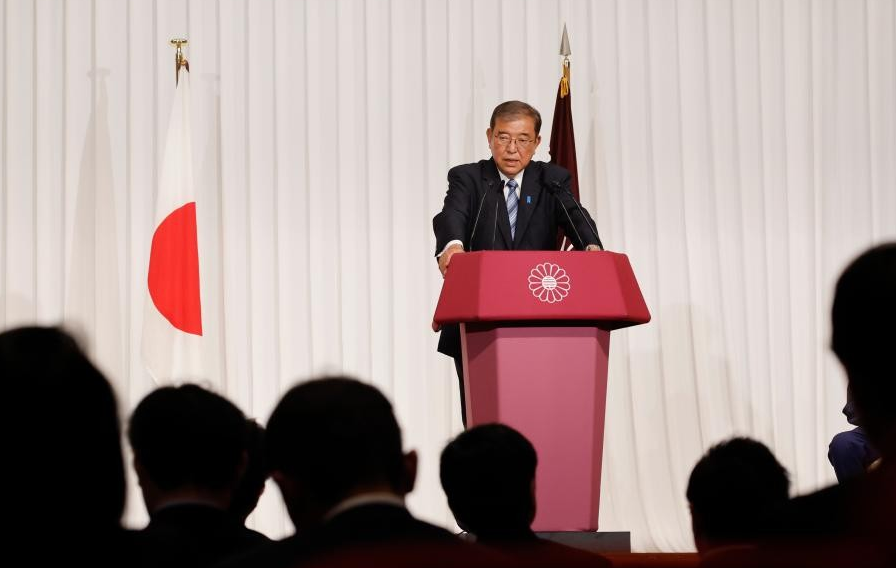
Japanese Prime Minister Shigeru Ishiba was re-elected as party leader on Monday, securing his role despite his coalition losing its parliamentary majority in last month’s lower house elections. Ishiba, who assumed office on October 1 and immediately called for snap elections, now faces the complex task of leading a minority government as key global dynamics shift. Protectionist U.S. ally Donald Trump returns to office, tensions with China and North Korea remain high, and domestically, pressure to control living costs continues to rise.
Although Ishiba’s Liberal Democratic Party (LDP) and coalition partner Komeito secured the largest bloc in the lower house, they lost the majority held since 2012, leaving Ishiba dependent on smaller opposition parties to pass legislation. Speaking after the parliamentary vote that reaffirmed his leadership, Ishiba emphasized the need for the LDP to transform: “We must become a national party that empathizes with the people’s struggles, their challenges, and their hopes.”
Monday’s vote underscored Ishiba’s tenuous hold on power; for the first time in 30 years, the vote went to a run-off, with Ishiba prevailing by securing 221 votes. This victory, though significant, remains below a clear majority in the 465-seat lower house.
Next year’s elections for the upper house pose further risk to the ruling coalition’s slim majority if Ishiba cannot rebuild public trust following a scandal involving unreported donations to lawmakers.
Ishiba’s immediate task is crafting a supplementary budget for the fiscal year ending in March, balancing increased welfare spending and measures to counter rising prices. To pass the budget, Ishiba must secure support from at least one opposition party, likely the Democratic Party for the People (DPP) led by Yuichiro Tamaki. Though Tamaki has held cooperation talks with Ishiba, DPP lawmakers abstained from supporting him in the leadership vote. Tamaki’s political standing was further weakened after he admitted to an extramarital affair, revealed by a tabloid on Monday.
With his reappointment secured, Ishiba made changes to his cabinet, appointing new ministers for transport, justice, and agriculture, filling roles vacated by LDP members who lost their seats in the election.
Ishiba will soon embark on a series of international engagements, including a Group of 20 summit in Brazil on November 18-19. Ishiba is also arranging a meeting with President Trump, either en route to or returning from Brazil, after congratulating him in a brief five-minute call last Thursday. While Japan aims to re-establish strong ties with Trump, some officials remain wary that Trump might renew protectionist trade demands or call for Japan to cover more of the costs associated with U.S. military presence in the country.
Reflecting on Trump’s election promises, Ishiba said, “Trump mentioned various issues, including Ukraine, Gaza, and alliances, but his exact policies remain to be seen until he takes office. Our goal will be to propose solutions that serve the interests of both countries.”
(WSH Tokyo reporter: Ryota Nakamura)



It is in reality a great and useful piece of info. I’m glad that you shared this helpful information with us. Please stay us up to date like this. Thanks for sharing.